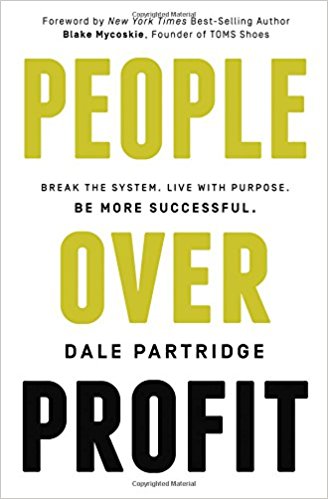Learn how to create long term success in your company
Companies go through phases
When we think about capitalism, inevitably some ugly examples pop up into our mind. Companies which are greedy, ruthless to their employees and the environment, the list goes on. But are some companies really inherently bad? The truth is that companies go through different cycles.
Most companies start out with honesty, then when they get successful they move into efficiency, then deception and if they last long enough ultimately redemption.
A good example is McDonald’s. The company’s motto was “Quality, Service, Cleanliness and Value” when they started in 1950. Today, of course, it is hard to associate that motto with the company as they go through scandal after scandal.
So what happened to McDonald’s? Using the cycle model above, the company moved into the efficiency phase where quality and service fell into the background.
Using our model we can see that most companies are either in their earlier stages or old horses trying to redeem their once positive public image.
Stage 1: The honest era
Companies start out honestly because they can’t afford to play dirty when they are trying to survive the first years. Think of it like an innocent, adorable and also weak baby.
The honest era is the phase where people are over profit and everybody wins. Most Silicon Valley-based companies are at this stage. The problem is as businesses grow, the pressure to make profit and stay competitive also grows and makes sticking to the honesty, fairness, and quality much harder.
The efficiency phase
Efficiency is not the problem, efficiency by itself is good, the problem arises when efficiency is no longer a means to and end, but the goal itself. The food industry, for example, overshadowed the original goal to produce healthy food with efficiency through the ruthless use of antibiotics, growth enhancers, pesticides and genetic modifications.
The deceptive phase
Companies may thrive on the efficient phase, but as they grow bigger and bigger, the temptation to drift over to the dark side becomes more tempting. The deceptive phase is where companies move their production to developing countries where laws are more flexible. Where they don’t have to take so much care of the environment and where they sometimes even have access to child labor.
Misleading advertising, deceptive employment tactics and suboptimal products are other characteristics of the deceptive phase. When Ford Motor got into trouble with its customers because of dangerous technical flaws in the 1970s after launching the Ford Pinto, the company decided to settle the issues in court with the families of the victims instead of opting for a global recall to prevent further accidents. Such ruthless behavior only yields short-lived success though. As consumers gradually drift away from such companies.
The apologetic phase
This is the era where companies try to restore what has been broken. As they see the consequences of their ruthless behavior, the company tries to regain the once proudly hold values like confidence, faith in quality and accountability. This needs to happen from the inside out.
Ford started to invest in higher quality standards in the 90’s to increase customer satisfaction. In 2010 Toyota issued an apologetic statement admitting dangerous mistakes in the brakes of one of their models. This type of choices naturally helps a company to gain or hold on to the trust of their customers. But what if a company wouldn’t have to resort to apology in the first place, and stay in the honest era instead?
Staying true to honesty
If a company wants to stay in the honest era, it has to take good care of its employees and customers. If the employees are happy and identify with their company, they will also care for their company’s success. If the company operates efficiently, the natural outcome will be happy customers. Customers need to feel cared for, they want to be treated special and being valued.
Transparency is another important characteristic of towards business success. In this information age, it is liberating to be transparent and foolish to try to hide things which people should know.
A company should also be authentic. Authenticity means to practice what you preach.
Generosity is another important value. Customers not only value the product, but they also value the brand’s values. The shoe brand TOMS had great success with its policy of giving a pair of shoes to a child in need for every purchased pair of shoes. The eyewear company Warby Parker did the same with glasses with great success.
Creating value and quality
Customers care about details. If they see a nicely designed company website or are professionally treated by the company, they will think that they are taken care of in that company. Increasing value may mean increasing prices or reducing profit margin, but that isn’t as important as providing the customers with the right emotions.
Facing fear is also an important characteristic of a company. Many companies fear change or doing something outside of the normal path in their business. Don’t let fear prevent you from growing and building on creative, new ideas.
Get started and build your own company by doing
Now that you got the principles of building a successful company, the next step is to start moving. Don’t get stuck in the “how to” phase. You’ll learn by doing and not the other way around. Start by being your potential customer. What would I like to have or what do I need? After thinking through that question start coming up with solutions.
The key message of this book is
Capitalism and companies aren’t inherently good or bad, they just go through cycles and often become corrupted along the way. This pattern, however, doesn’t have to happen and can be avoided by developing new economic strategies and models.

